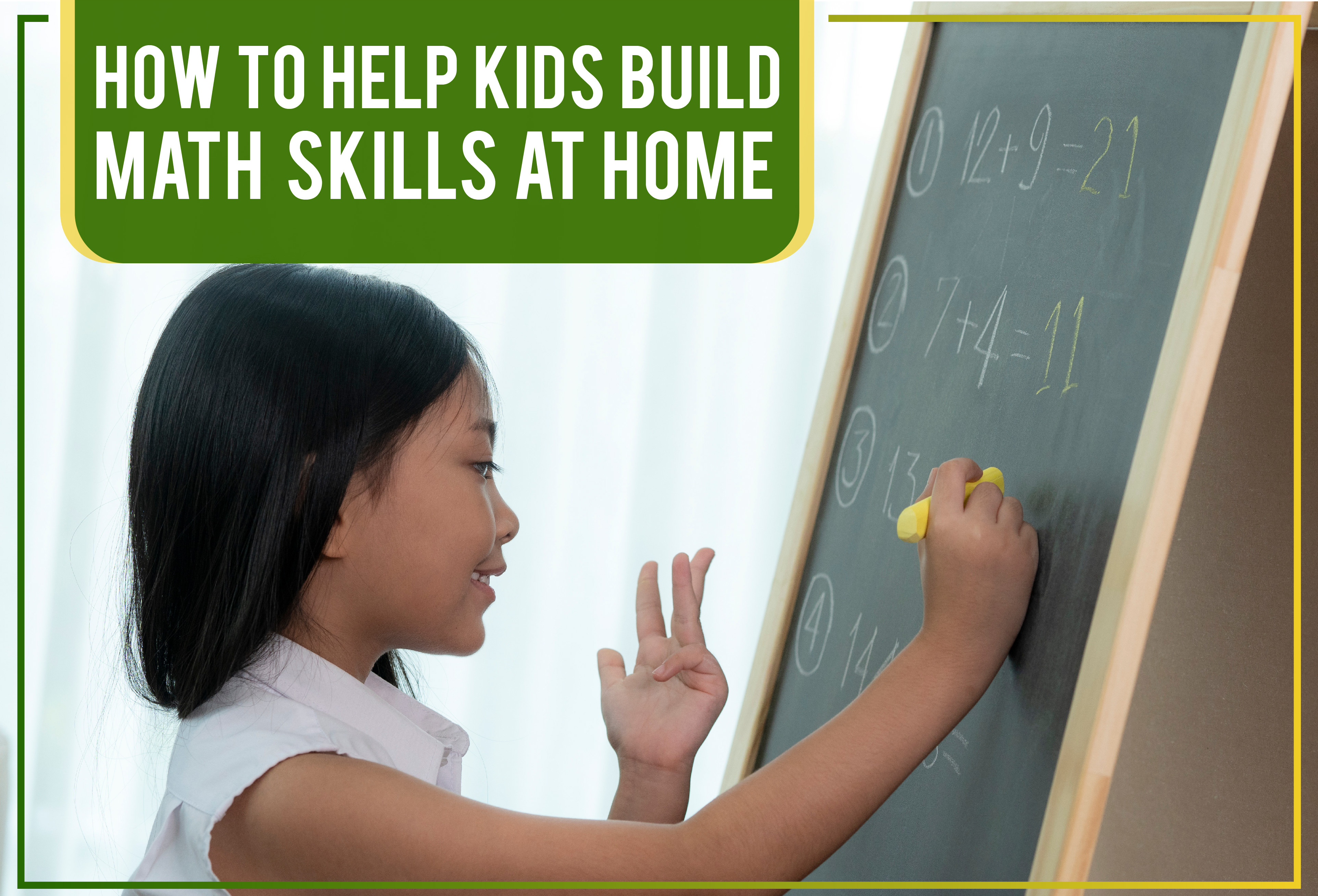How to Help Kids Build Math Skills at Home
Many people find math to be so challenging that it ends up causing them anxiety. Mastery of this subject can’t be achieved overnight. If you find yourself feeling lost when your child asks you for assistance with math, know that you're not alone. So how can you help your child build math skills? What can you do to help your child prepare for school and equip your little one with the essential skills needed for academic success?
If you want your child to excel in math, it's crucial to provide them with plenty of opportunities to learn and build these skills at home. Here are a few tips to help get you started.
Start with the basics
The first step is to make sure your child understands the basics of math, which start with counting and simple addition. You can approach these skills by using a variety of different tools and activities. Instead of writing numbers on paper, consider incorporating toys, games, or other activities at home! Get creative and make learning math interactive, engaging, and fun. It will become easier for your little one to move toward more advanced math concepts once they have built a strong foundation and have gotten a firm grasp on these basics.
Provide opportunities for hands-on learning
Another great way to help build math skills with children is by providing them with opportunities for hands-on learning. Whether you cook together or sort clothes into laundry baskets, there are plenty of tasks that parents might take for granted that can be used to teach basic number skills and will be used over and over again throughout life.
Baking, for example, is one of many household activities that involve math. When you bake, your child will be presented with simple fractions as you measure ingredients, which can be an excellent opportunity for your little one to build math skills. You can also assign your little one other tasks such as setting the oven timer, measuring flour and sugar, or setting up a specific number of cupcake paper cups.
Show your child practical applications of math in real life
It's also important to show children how numbers can be used in their everyday lives. Children will find it easier to understand math concepts if they see them applied outside of the classroom, and you never know what might spark their interest!
For example, when you’re shopping for groceries, ask your little one how many apples there are. You can also give your child specific tasks such as getting two boxes of cereals from the shelf or five oranges from the fruit section. By doing this, children learn about counting while also understanding that all objects have a certain quantity attached to them. This is a fun and great strategy to teach math!
Play games
Who says building math skills can't be fun? Numbers can be used to play a variety of games. For example, you can place a number of objects in a certain area and ask your child how many there are, depending on what they see. Feel free to make use of any item you can find at home.
You can also use their toys for teaching math. Consider building something together using building blocks or legos. Create a project that involves the fundamentals of math concepts - addition, subtraction, multiplication, and division. This way, playtime becomes a venue for a fun learning activity, as well as a great opportunity to connect with your child too.
Incorporate math into bedtime reading
Did you know that you can even squeeze math concepts into reading bedtime stories to your child at night? There are many books with math-related content. Even if a particular story doesn't explicitly mention a mathematical concept, you can still ask your child to find and count objects on each page that relate to the story.
If math skills seem too complicated, don't worry. You're not alone. You can help kids build their math skills at home by taking a look around you. Follow these four tips to make learning math easier, more engaging, and fun!
Here at Mrs. Myers' Reading Room, we offer a numeracy program that focuses on incorporating mathematical concepts with student interactions through various problem-solving tasks. Learn more about us by visiting our website.





